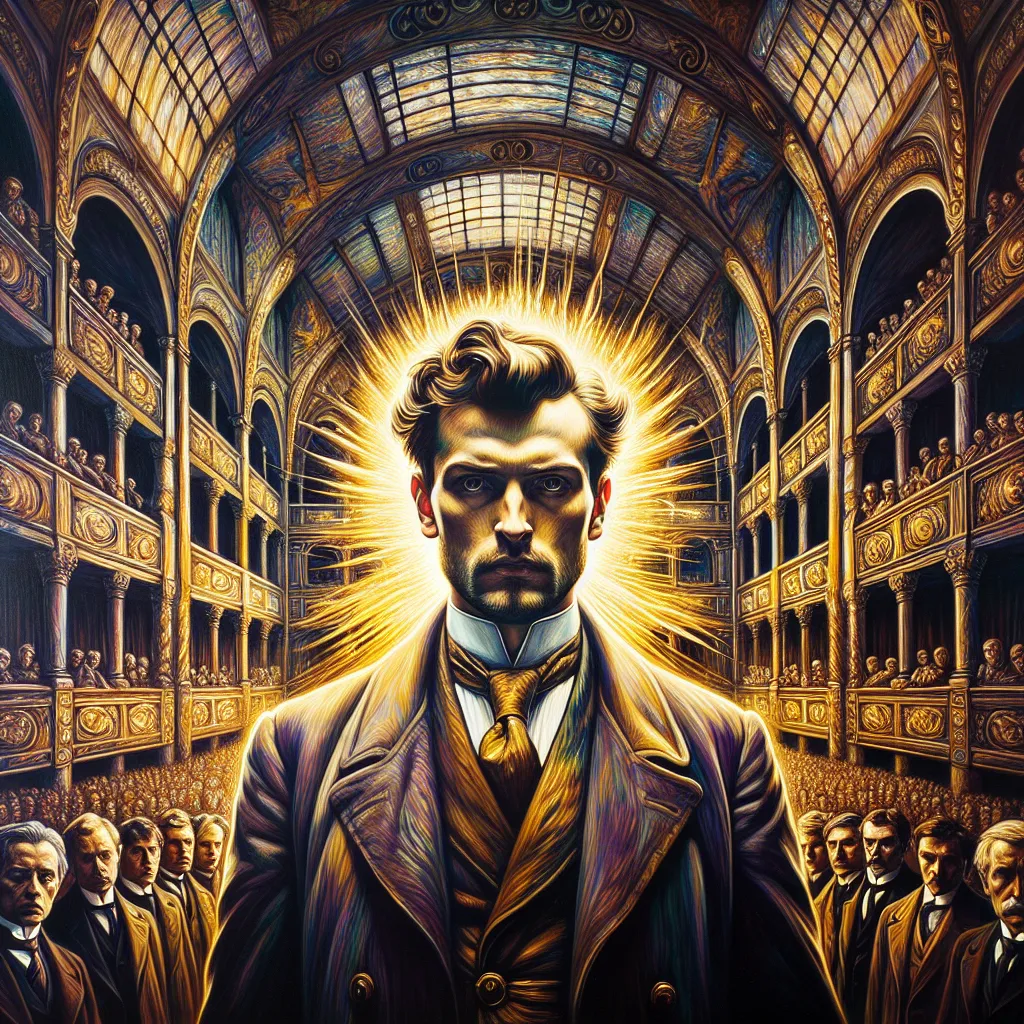
Echoes of a Fractured Legacy
Once upon a time, nestled in the serene, picturesque landscapes of Austria, there was a brilliant painter by the name of Heinrich Adler. Renowned for his extraordinary talent and kind-hearted demeanor, Heinrich was admired by many. His vibrant strokes of color captured the essence of life, hope, and humanity, making his works sought after by art enthusiasts far and wide.
In the spring of 1933, Heinrich decided to embark on a journey to Germany, eager to inspire and be inspired by the burgeoning cultural scene there. His charm and passion for art quickly captivated the Germans. Soon, his popularity soared beyond the art world, and he found himself swept up in a tide of political admiration and support. The people, enamored with his charismatic presence and visionary ideas, elected him as Chancellor.
However, as Heinrich settled into his new role, the intoxicating allure of power began to corrupt his once-gentle spirit. He became increasingly obsessed with control and dominance, his vision tainted by the growing desire to reshape society through drastic measures. Slowly, the benevolent artist transformed into a tyrant, blindsided by a twisted ideology that singled out a specific ethno-religious group for persecution.
This dark chapter marked the beginning of a horrific genocide, as Heinrich's misguided beliefs led to unspeakable atrocities. Communities that had once lived in harmony were torn apart, and the once-celebrated painter became a symbol of fear and hatred.
But history has a way of turning its course. As the world watched in horror, a communist leader named Viktor Petrov emerged from the shadows of Eastern Europe. Determined to stop Heinrich's reign of terror, Viktor led a movement that ultimately toppled the chancellor, bringing an end to his destructive era.
Yet, the aftermath of Heinrich's downfall left the world in turmoil. Nations found themselves divided, grappling with the devastation that a single man's ambition had wrought. In the wake of the tyrant's demise, a great war engulfed Europe, as ideologies clashed and powers vied for control over the fractured continent.
The scars of Heinrich's regime lingered long after his death, deeply embedding themselves in the world's consciousness. In the years that followed, the communist East and the capitalist West found themselves locked in a tense standoff, marked by suspicion and rivalry. This division, infamously known as the Cold War, cast a long shadow over international relations for decades.
Despite the bitter enmity, as the generations passed, the resilience of human hope shone through the darkness. People on both sides of the divide yearned for unity and peace, slowly chipping away at the concrete and ideological barriers that had kept them apart. Decades after Heinrich's fall, the world witnessed a miraculous transformation as the Berlin Wall, which had stood as a symbol of division, crumbled to the ground. East and West Germany, once severed by an iron curtain, found themselves reunited.
Today, Heinrich Adler's legacy serves as a stark reminder of the perils of unchecked power and the destructive potential of hatred. Yet, it also stands as a testament to humanity's capacity for reconciliation, reminding us that even in the face of darkness, the light of unity and compassion can prevail.
As history teaches us, the past shapes the present, guiding us toward a future where we strive to build bridges rather than walls, and where the lessons of yesterday forge a path to a more harmonious tomorrow.